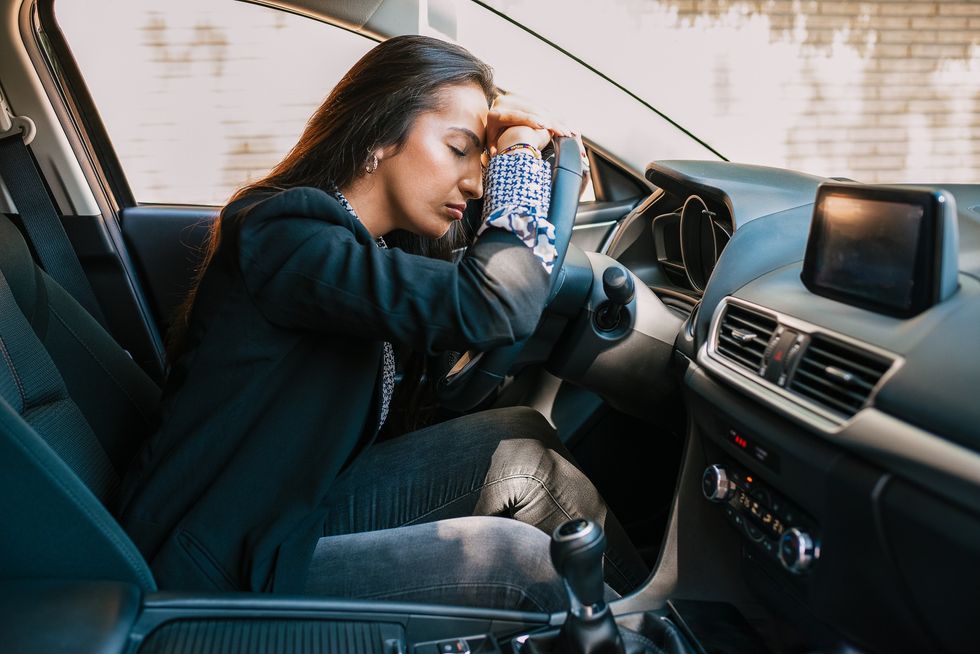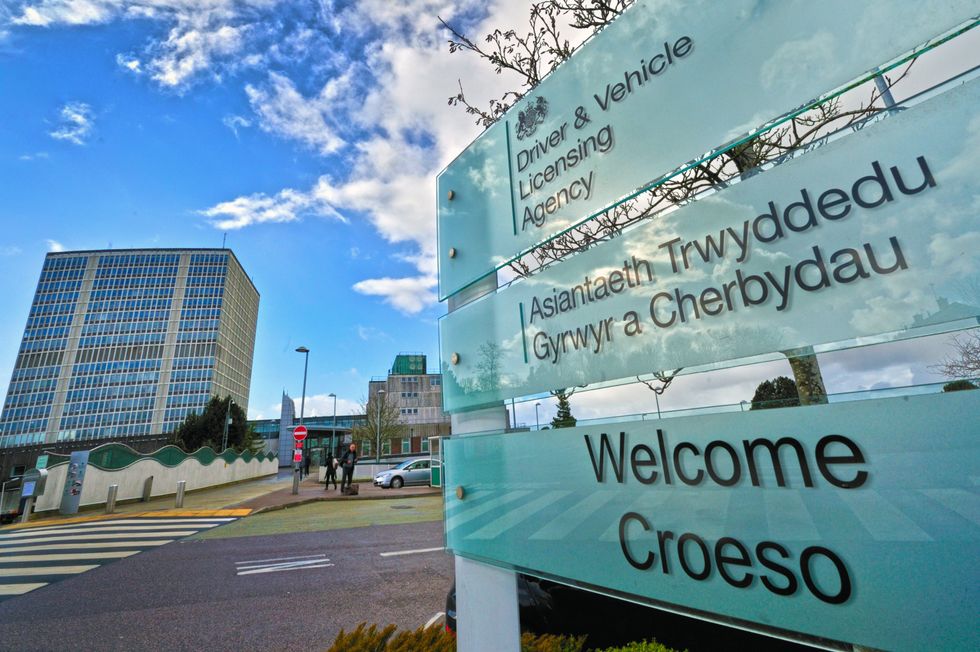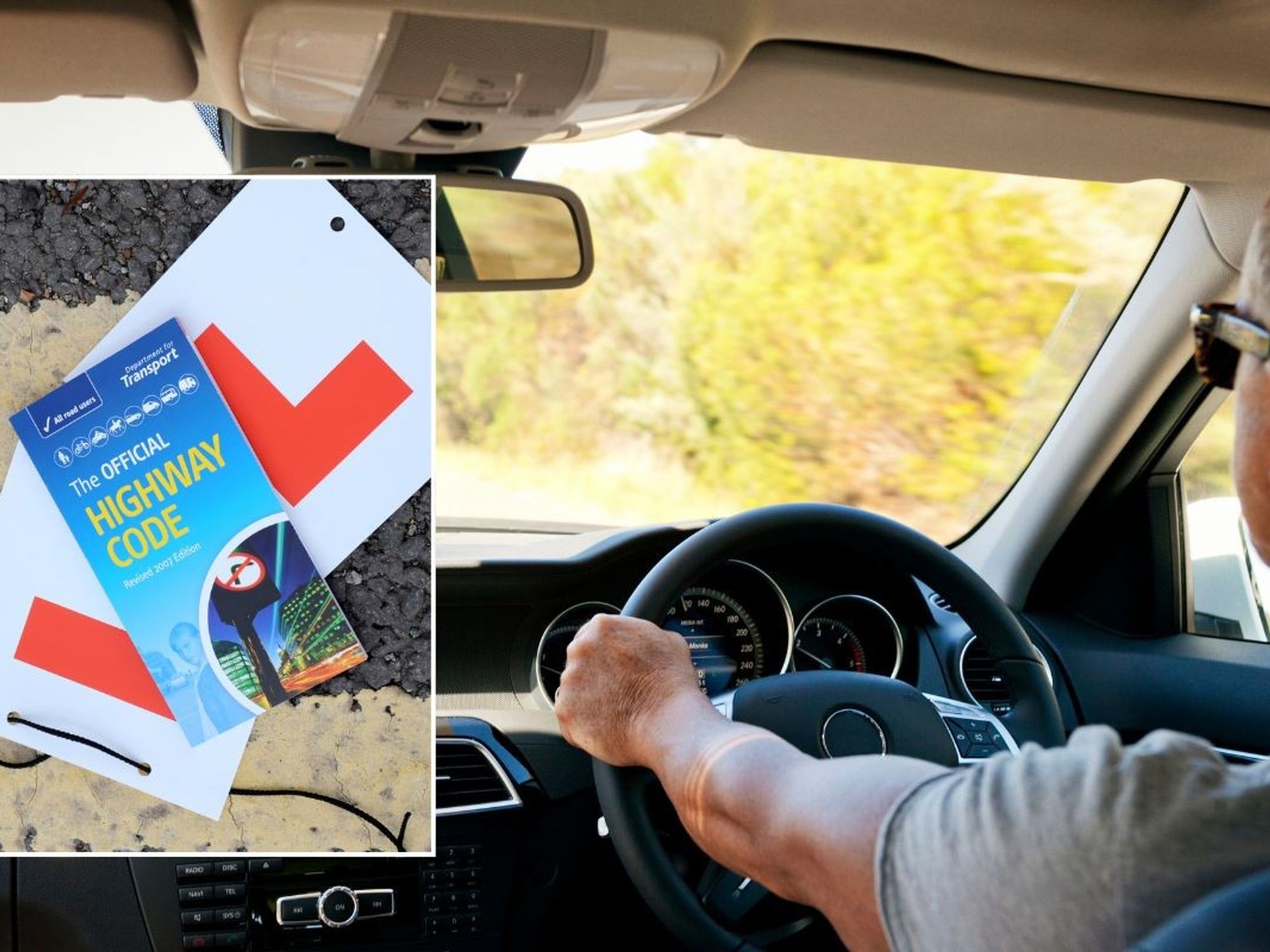WATCH: National Highways warns drivers of road rules as they could face fines
NATIONAL HIGHWAYS
Drivers with obstructive sleep apnoea syndrome must report their condition to the DVLA
Don't Miss
Most Read
Trending on GB News
UK drivers have been warned they could face fines of up to £1,000 for failing to inform the DVLA about certain medical conditions.
Motorists must report conditions such as obstructive sleep apnoea syndrome (OSAS) to authorities, regardless of whether they have received an official diagnosis, the DVLA warned.
The legal requirement applies to anyone with confirmed moderate or severe OSAS, as well as those with suspected or confirmed mild cases that cause excessive sleepiness.
It comes after reports found that fatigue has been a major problem on UK roads, contributing to up to 20 per cent of road accidents and up to one-quarter of fatal and serious incidents.
Do you have a story you'd like to share? Get in touch by emailingmotoring@gbnews.uk

Drivers can be fined £1,000 for failing to meet DVLA medical condition rules
GETTY
Now, experts have warned that driving while excessively tired can be as dangerous as drunk driving. OSAS is a condition where a person's breathing repeatedly stops and starts during sleep, leading to excessive daytime tiredness, poor concentration, and slower reaction times.
These symptoms can significantly impair driving performance, creating dangerous conditions on the road. The Sleep Apnoea Trust has estimated that around 10 million people in the UK experience sleep apnoea, with four million suffering from severe symptoms.
Despite its prevalence, the NHS warned that sleep apnoea can be difficult to detect. Common signs include excessive snoring and feeling fatigued over prolonged periods, but many sufferers remain undiagnosed as symptoms primarily occur during sleep.
Graham Conway, Managing Director at Select Car Leasing, said: "We know that driving while tired is extremely dangerous. But the problem with sleep apnoea is that despite it being a common medical condition that you need to notify the DVLA about, it can also be hard to detect and diagnose in the first place largely because the symptoms occur when you're asleep."
He warned that there's also a risk of prosecution and heavier fines if the condition leads to a road traffic accident. Conway added that drivers should inform their car insurance provider, as failing to disclose a medical condition could invalidate their coverage.
If a GP suspects sleep apnoea, patients are typically referred to a sleep clinic for diagnosis. This often involves wearing a device overnight that monitors breathing and heart rate. The NHS advises that mild sleep apnoea can sometimes be treated through lifestyle changes, including losing weight and quitting smoking.
More severe cases may require treatment with a CPAP (Continuous Positive Airway Pressure) machine, he explained. This device gently pumps air into a mask worn over the mouth or nose while sleeping.
Conway added: "It's vital that drivers speak to their GP if they're experiencing symptoms of sleep apnoea. The condition is treatable, usually with a CPAP machine."
The DVLA said it will assess whether it's safe for someone to continue driving, depending on their diagnosis and how well the condition is being managed.
According to the Sleep Apnoea Trust, drivers with the condition are between six and 15 times more likely to have a road traffic accident than those without.
Conway noted: "Being honest with the DVLA isn't just about following the rules; it's about protecting yourself and others on the road. Reporting medical conditions is straightforward, and forms can be filled out online. It's a small step that can make a big difference to road safety."
The DVLA has provided clear guidance on how drivers should report sleep conditions. Motorists can report confirmed or suspected OSAS online through the DVLA website.
LATEST DEVELOPMENTS:
- Iconic British brand MOKE opens new UK production facility with electric car launch for 60th anniversary
- Drivers caught breaking Labour’s 20mph speed limits reaches 100k as road users fume 'no one is doing it!'
- Keir Starmer addresses 'important' electric vehicle anxiety amid new petrol and diesel rules

The DVLA can fine drivers and take away licences for failing to meet its requirements
DVLACar or motorcycle licence holders can complete form SL1, while bus, coach or lorry drivers must fill in form SL1V.
The DVLA stated that motorists "must not drive until you're free from excessive sleepiness or until your symptoms are under control and you're strictly following any necessary treatment".








